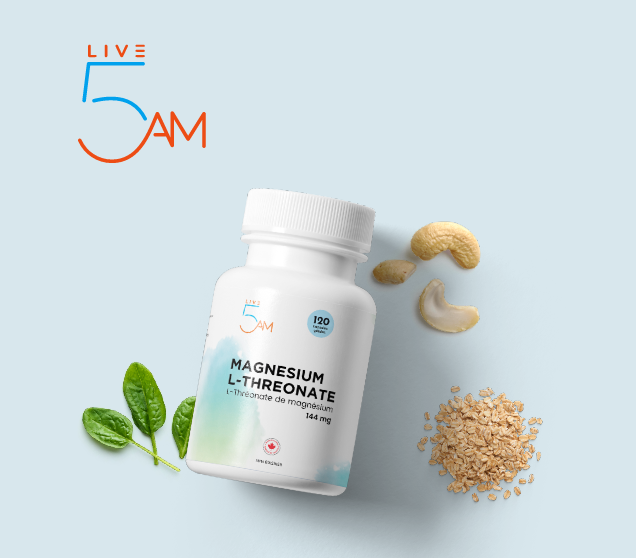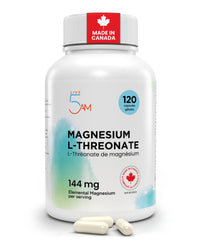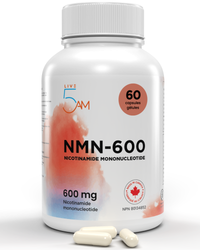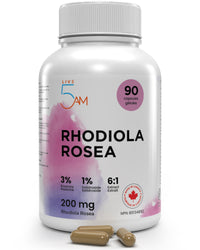Introduction: Rediscovering Energy in an Overloaded World
It was late 2020 when I first heard the name Rhodiola rosea. I had just wrapped up a product launch, my third in six months, and though the campaign was a success on paper, I felt completely depleted. My mind was foggy, my motivation tanked, and even simple decisions—like choosing between emails or lunch—felt paralyzing. Burnout, I realized, wasn't just a buzzword; it was a full-bodied experience.
A colleague casually mentioned Rhodiola as we exchanged fatigue remedies over Zoom. "It's this adaptogen," she said, "kind of like nature’s stress coach." I laughed. But the next morning, I found myself reading peer-reviewed studies before I’d even poured my coffee.
That moment kicked off a multi-year exploration—of Rhodiola, adaptogens, and how modern professionals like us might reclaim focus, resilience, and energy without relying entirely on caffeine or sheer willpower.
What Is Rhodiola Rosea? A Botanical Introduction
Rhodiola rosea—also known as golden root, Arctic root, or roseroot—is a perennial flowering plant native to cold, mountainous regions like Siberia, Scandinavia, and parts of Canada. It belongs to the Crassulaceae family and thrives in harsh environments, which seems fitting given its traditional use to help humans thrive under stress.
What makes Rhodiola stand out isn’t just its folklore (used by Vikings for endurance or by Russian cosmonauts for stamina), but its active compounds—rosavin, salidroside, and tyrosol—which have been studied for their ability to modulate neurotransmitters like serotonin, dopamine, and norepinephrine.
In simpler terms? Rhodiola helps your brain and body manage stress better, without the jittery crash that comes with many modern solutions.
Scientific Backing: What the Research Says
Over the past two decades, scientific interest in Rhodiola has grown considerably. Several placebo-controlled studies have found that standardized Rhodiola extracts (like SHR-5) can reduce symptoms of fatigue, improve cognitive performance under stress, and support emotional well-being.
In a 2012 study published in Phytomedicine, participants with burnout symptoms saw significant improvement in fatigue and concentration after four weeks of Rhodiola supplementation. Similarly, a 2016 review highlighted its anti-fatigue and anti-stress effects, noting low incidence of side effects compared to traditional stimulants or antidepressants.
To be clear: the research is promising but not perfect. Dosages vary widely, study durations are often short, and results can be inconsistent. Still, the body of evidence suggests a meaningful role for Rhodiola in managing modern mental and physical stressors.
Personal Experimentation: My Own Use Case
I began integrating Rhodiola into my routine in early 2021, starting with 200 mg of a standardized extract in the morning. The first week felt subtle—less afternoon slumps, a slight uptick in focus. But by week three, something clicked. I was clearer. I was moving through tasks without that nagging undercurrent of mental friction.
I didn’t feel wired, like I might with coffee. I felt steady.
Since then, I’ve used Rhodiola cyclically, especially during high-pressure phases like product launches or client onboarding sprints. One thing I’ve noticed? It pairs well with mindfulness. When I combine it with 10 minutes of breathwork or journaling, the results seem amplified—like my nervous system finally gets the memo that things are under control.
Real-Life Applications: Who Might Benefit (and When)
Rhodiola isn’t a miracle herb. It won’t turn burnout into bliss overnight. But based on personal experience and the literature, it could be genuinely helpful for:
-
Knowledge workers juggling high-stakes mental tasks
-
Entrepreneurs navigating long-term uncertainty
-
Parents and caregivers experiencing emotional overload
-
Athletes and weekend warriors looking for natural performance support
That said, timing matters. Taking Rhodiola late in the day can interfere with sleep, and for individuals with bipolar disorder or who are pregnant/nursing, medical guidance is essential.
Lessons From Clients and Colleagues
One client—let’s call her Sarah—added Rhodiola to her supplement stack during a career pivot. She was skeptical, especially since she already had a clean diet and strong meditation practice. But within weeks, she reported sharper decision-making and better emotional regulation. “I don’t freak out at Slack messages anymore,” she told me. “That alone feels worth it.”
Another colleague used it alongside therapy while tapering off a mild antidepressant (with her doctor’s oversight). It wasn’t a replacement, but a companion tool—one that helped smooth her transition without destabilizing her focus.
These are anecdotal, yes. But they echo what many functional medicine practitioners have found: that adaptogens work best as part of a holistic strategy, not in isolation.
Cultural Relevance: Adaptogens and the Modern Hustle
We’re living in an adaptogen renaissance. From Instagram influencers to boutique supplement brands, everyone seems to be rediscovering ancient plants for modern problems. This trend raises two questions:
-
Are we chasing natural remedies because we’ve reached a tipping point of stress?
-
Or are we romanticizing “quick fixes” with shiny packaging and botanical buzzwords?
Probably both. I’ve fallen for beautiful marketing too. But Rhodiola’s staying power isn’t in its branding—it’s in its versatility and subtle efficacy. In an age where burnout is practically a badge of honor, tools that support resilience without overstimulation are worth exploring.
Professional Self-Reflection: What I’ve Learned
Integrating Rhodiola rosea into my life taught me that resilience isn’t just about pushing through. It’s about building systems—physiological, psychological, and logistical—that allow you to respond rather than react.
Professionally, I’ve become more mindful of how I schedule high-cognitive-load tasks. I front-load complex work when I’m at my best (mornings, with Rhodiola), and I now encourage teams I consult with to consider rhythms, not just hustle.
Do I credit the herb entirely? Of course not. But it acted as a catalyst—one that helped me observe my own patterns and make smarter, more sustainable choices.
Navigating Supplement Quality and Dosing
A brief but important aside: not all Rhodiola is created equal. Look for products that list SHR-5 extract or have a rosavin-to-salidroside ratio (3:1 is typical in research).
Standard dosing ranges from 200–600 mg per day, ideally in the morning or early afternoon. Start low and observe. Some people are sensitive; others don’t feel much at all.
And always check for third-party testing and sourcing transparency. Overharvesting of wild Rhodiola is a growing concern, especially in parts of China and Russia. Sustainable brands will disclose sourcing practices.
Where the Uncertainty Lies
Even with decades of use and modern study, we still don’t know everything about Rhodiola. Long-term safety hasn’t been conclusively established, and individual responses vary widely.
I sometimes wonder if my improved focus is from the herb or just the fact that I believe I’m investing in my well-being. The placebo effect is powerful. But does that matter, if it works?
These are the kinds of honest questions I think we should ask more often in the wellness space.
Conclusion: The Case for Subtle Interventions
In a world obsessed with instant results, Rhodiola rosea is refreshingly... subtle. It doesn’t promise the moon. It doesn’t scream for attention. But in its quiet way, it offers a foundation—one that supports clarity, endurance, and maybe even a little calm.
If you’re feeling stretched thin, I’d encourage you to explore it. Thoughtfully. Responsibly. With curiosity, not desperation.
And if you’ve tried it, I’d love to hear your experience. What worked? What didn’t? What surprised you?
We’re all learning here.
And maybe—just maybe—Rhodiola is one small part of a much bigger resilience story.







